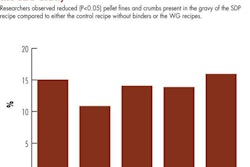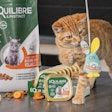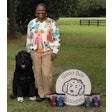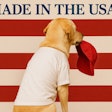"Food safety is not proprietary," declared Mike Hayes, director of food safety and quality for Del Monte and a speaker during "Petfood Insights: New Approaches to Quality & Technology." The symposium took place September 10-11 in Memphis, Tennessee, USA (yes, Elvis was sighted) and was hosted by Kemin.
Hayes gave an overview of food safety for the petfood industry and shared how Del Monte approaches it to achieve its philosophy that producing safe food is the company's number one priority. The other tenet of the philosophy is that sharing ideas, programs and best practices with the rest of the food and petfood industries is crucial.
That belief was echoed by several attendees at the event, as well as the other speakers from petfood companies, including Mark Brinkmann, VP of operations for Diamond Pet Foods, and John Krehbiel, VP of sales for C.J. Foods. While I have heard this so often since the Food Safety Modernization Act (FSMA) was passed in January 2011 that it's become almost lip service -- "Food safety should not be proprietary" -- the fact that these petfood executives were presenting their companies' programs in a public forum tells me that they actually put it into action.
During his presentation, Brinkmann went even further, issuing what he termed a "call to action" to the symposium participants and to the US petfood industry at large. Namely, FSMA and its zero tolerance for Salmonella in petfood facilities unfairly targets our industry and puts it at risk at a time when the US economy still needs more high-paying manufacturing jobs of the type offered by companies making dry petfood. To remedy this, Brinkmann urges US industry professionals to contact their respective members of Congress to educate them about the industry's benefits to the economy, strong food safety efforts and record, and very low incidence of causing Salmonella-related incidents. The ultimate goal is to urge Congress to change some of the tenets of FSMA.
Brinkmann made many interesting points in presenting his case, including how our industry creates manufacturing jobs often in rural areas, which typically need them the most. Further, these jobs offer relatively high wages and good benefits and, for the most part, can't be "off-shored." The raw materials used in the dry petfood process originate mainly from the US, and the process itself is environmentally friendly and safe.
But the most compelling argument Brinkmann posed, in my opinion, was that Salmonella in dry petfood has never been properly presented. Representatives of the Food and Drug Administration (FDA) have repeatedly stressed that it's "well-documented that Salmonella in petfood can harm consumers." Brinkmann concedes documentation exists but has never been put in context. He showed US Centers for Disease Control data illustrating that from 2008-2012, 150 cases of Salmonellosis in humans related to petfood were documented. That is a mere fraction of the cases related to produce and other foods for human consumption.
Yet, Brinkmann, claims, FDA is now focusing disproportionate attention on petfood, based on FSMA's mandate of zero Salmonella. Which, as we all know, is an impossible goal, because Salmonella is everywhere in the environment. The most important thing is to ensure it doesn't end up in petfood, which the extrusion process -- and our industry's strong safety programs --help achieve.
Brinkmann added that he doesn't blame FDA -- "they're just doing their job according to the mandate under the law," he said -- which is why he's urging the industry to push Congress to change the law. But he does wish FDA would help the industry educate the public on one basic fact: Dogs and cats do not get sick from Salmonella. If pet owners understood that, Brinkmann believes, it would go a long way toward helping them feel better about the petfood products they buy for their pets.
What do you think? Do you agree with Brinkmann -- and are you ready to approach your Congressional representatives with these facts?
Google+


















